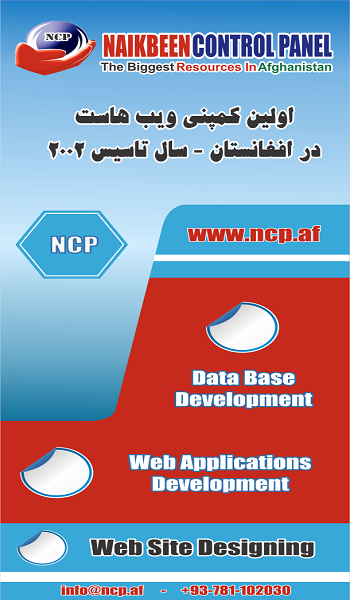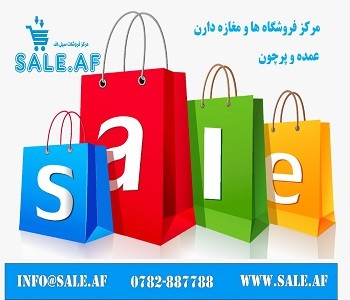The United Nations Assistance Mission in Afghanistan (UNAMA) is a UN Special Political Mission established to assist the state and the people of Afghanistan in laying the foundations for sustainable peace and development. UNAMA was established on 28 March 2002 by United Nations Security Council Resolution 1401. Its original mandate was to support the implementation of the Bonn Agreement (December 2001). Reviewed annually, this mandate has been altered over time to reflect the needs of the country and was extended for six months, on 17 September 2021, by UN Security Council Resolution 2596 (2021).
The Council also requested the Secretary-General to prepare a written report by 31 January 2022 outlining “strategic and operational recommendations for the mandate of UNAMA in light of recent political, security, and social developments” in Afghanistan.
UNAMA is headed by the Special Representative of the Secretary-General (SRSG) for Afghanistan, Deborah Lyons, who was appointed to the post in March 2020, replacing Tadamichi Yamamoto. Previous SRSG’s were– Lakhdar Brahimi who served from October 2001 to January 2004; Jean Arnault from February 2004 to February 2006, followed by Tom Koenigs from March 2006 to December 2007, Kai Eide from 2008 to 2010, Staffan di Mistura from 2010 to 2011, Ján Kubiš from 2012 to 2014, Nicholas Haysom from 2014 to 2016 and Tadamichi Yamamoto from 2016 to 2020.
Since 2008, and following a directive of the UN Secretary-General, UNAMA is an integrated mission. This means that the Special Political Mission, all UN agencies, funds and programmes, work in a multidimensional and integrated manner to better assist Afghanistan according to nationally defined priorities.
The SRSG is responsible for all UN activities in the country and directly oversees the Security Section, Strategic Communication Service, Human Rights Section, and Peace and Reconciliation. The SRSG’s Chief of Staff oversees UNAMA’s Field Offices.
Two deputy Special Representatives (DSRSG) oversee the main pillars of the mission – political and developmental issues. Included under these pillars are mission sections specializing in issues such as political analysis, reporting, and outreach, and donor coordination, as well as the coordination of UN agencies funds and programmes.
REQUIRED UN CORE VALUES AND COMPETENCIES FOR THIS POSITION
Professionalism: Shows persistence when faced with difficult problems or challenges. Shows pride in work and in achievements; demonstrates professional competence and mastery of subject matter; is conscientious and efficient in meeting commitments, observing deadlines and achieving results; is motivated by professional rather than personal concerns; shows persistence when faced with difficult problems or challenges; remains calm in stressful situations.
Teamwork: Works collaboratively with colleagues to achieve organizational goals. Solicits input by genuinely valuing others’ ideas and expertise; is willing to learn from others. Places team agenda before personal agenda. Supports and acts in accordance with final group decision, even when such decisions may not entirely reflect own position. Shares credit for team accomplishments and accepts joint responsibility for team shortcomings.
Planning & Organizing: Develops clear goals that are consistent with agreed strategies. Identifies priority activities and assignments; adjusts priorities as required. Allocates appropriate amount of time and resources for completing work. Foresees risks and allows for contingencies when planning. Monitors and adjusts plans and actions as necessary. Uses time efficiently.
The Programme Management Assistant typically reports to the Senior Gender Advisor and the Gender Affairs Officer:
Applicants must accurately complete, sign and date the United Nations Personal History form (P.11) and submit the duly completed signed P.11 by e-mail to: unamava_substantive@un.org
Required documents to be submitted along with the signed and completed UN P.11:
No fee:
The United Nations does not charge a fee at any stage of the recruitment process (application, interview meeting, processing, or training). The United Nations does not concern itself with information in applicants
bank account.
Applicants are reminded that the United Nations cannot appoint a person who is the father, mother, son, daughter, brother, or sister of a staff member. For this reason, applicants are required to disclose at the time of their application, whether they bear any of the above relationships to a staff member of UNAMA or any other UN entity which is part of the Secretariat. In addition, selected candidates would be required to complete a family declaration form prior to assuming their duties with the Mission. Failure to disclose any of the above relationships constitutes a material omission, that could lead to termination or dismissal from the United Nations.
The necessity for ensuring the highest standards of efficiency, competence and integrity remain the paramount considerations in the employment of personnel. To ensure fairness and transparency, selection will be made on a competitive basis through a selection panel.
unamava_substantive@un.org

